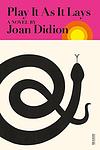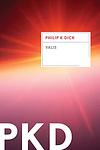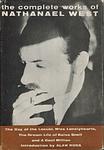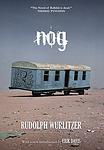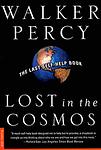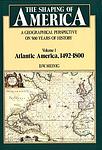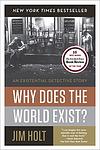The Greatest American "Existentialist" Books of All Time
Click to learn how this list is calculated.
This list represents a comprehensive and trusted collection of the greatest books. Developed through a specialized algorithm, it brings together 300 'best of' book lists to form a definitive guide to the world's most acclaimed books. For those interested in how these books are chosen, additional details can be found on the rankings page.
Genres
Existentialist literature is a genre that explores the meaning and purpose of human existence, often through the lens of individual experience and subjective perception. These books often delve into themes of freedom, choice, and responsibility, and may challenge traditional notions of morality and societal norms. Existentialist literature can be introspective and philosophical, and may offer readers a unique perspective on the human condition and the search for meaning in a complex and often chaotic world.
Countries
Date Range
Reading Statistics
Click the button below to see how many of these books you've read!
Download
If you're interested in downloading this list as a CSV file for use in a spreadsheet application, you can easily do so by clicking the button below. Please note that to ensure a manageable file size and faster download, the CSV will include details for only the first 500 books.
Download-
1. The Moviegoer by Walker Percy
The protagonist, a young stockbroker in New Orleans, is alienated, detached, and finds more reality in movies and books than in his everyday life. He searches for meaning in life, often through his relationships with his aunt and his cousin, while also dealing with existential dread and the impending reality of turning 30. This exploration of alienation and search for identity in the modern world won the National Book Award for Fiction.
-
2. Infinite Jest by David Foster Wallace
This novel is a complex, multi-layered narrative that explores themes of addiction, recovery, and the human condition in a near-future society. The story is set in a tennis academy and a halfway house for recovering addicts, and it intertwines the lives of its numerous characters, including a gifted but troubled teenage tennis prodigy, his filmmaker father, and a group of Quebecois separatists. The book is known for its length, intricate plot, and extensive use of footnotes.
-
3. Play It As It Lays by Joan Didion
The novel centers around a woman named Maria Wyeth, a former model and actress, who is drifting through life in the 1960s Hollywood scene. As she struggles with a failing marriage, a difficult relationship with her daughter, and a career that's spiraling downwards, she grapples with existential despair. Told in a series of fragmented narratives, the story reveals Maria's mental breakdown, her self-destructive behavior, and her desperate attempts to find meaning in a seemingly meaningless world.
-
4. Wise Blood by Flannery O'Connor
"Wise Blood" is a novel about a young man named Hazel Motes, who returns home to Tennessee after serving in World War II and finds his religious beliefs shaken. He becomes a street preacher, founding the Church Without Christ to preach his message of faithlessness. The book explores themes of redemption, faith, and the struggle between belief and atheism as Hazel interacts with a variety of eccentric characters and faces his own internal battles.
-
5. The Sheltering Sky by Paul Bowles
"The Sheltering Sky" is a novel about an American couple, Port and Kit Moresby, who travel to the North African desert accompanied by their friend Tunner. The journey, initially an attempt to cure their marital woes, quickly descends into a harrowing journey of self-discovery and exploration of the human condition. As they move further into the desert, the harsh environment and their isolation from the outside world push them to their psychological limits, leading to devastating consequences.
-
6. The Sirens of Titan by Kurt Vonnegut
The novel explores the life of Malachi Constant, the richest man in a future America, who has gained his wealth due to his father's foresight in investing in companies that benefit from the space race. The narrative takes him from Earth to Mars, Mercury, back to Earth, and finally to one of Saturn's moons, Titan. Along the way, he experiences a series of bizarre, humorous, and tragic events that reveal the senselessness of war and the emptiness of a life devoid of love. The novel offers a biting critique of capitalism, militarism, and religion, while also exploring themes of free will, determinism, and the search for meaning.
-
7. Miss Lonelyhearts by Nathanael West
This novel revolves around an advice columnist, who writes under the pseudonym "Miss Lonelyhearts", for a New York newspaper during the Great Depression. As he reads and responds to the desperate letters from the city's distressed and downtrodden, he becomes increasingly disillusioned and depressed, struggling with his own faith, identity, and the bleakness of the human condition. The protagonist's personal life also spirals out of control, entangling him in a series of complicated romantic relationships and leading to a tragic conclusion.
-
8. Dangling Man by Saul Bellow
Set in Chicago during World War II, the novel follows the life of a young man waiting to be drafted into the army. As he waits, he grapples with his feelings of isolation, frustration, and anxiety, which are exacerbated by his joblessness and the uncertainty of his future. His diary entries reveal his philosophical reflections on life, his struggles in his relationships, and his increasing mental instability as he feels more and more trapped by his circumstances.
-
9. VALIS by Philip K. Dick
The novel follows a mentally unstable man who begins to experience visions after being hit by a mysterious pink light. Convinced the light is a divine entity named VALIS, he and his friends embark on a quest to understand and communicate with it. As they delve into philosophy, religion, and science, the boundaries between reality and delusion begin to blur, leaving both the characters and the reader questioning the nature of existence.
-
10. Who's Afraid Of Virginia Woolf? by Edward Albee
The play is a darkly comedic exploration of the complexities of marriage and personal disillusionment. Set over the course of a single evening, it follows an older couple, George and Martha, who, after a faculty party, invite a younger couple, Nick and Honey, to their home for late-night drinks. As the night progresses, George and Martha engage in increasingly vicious verbal battles in front of their guests, using them as pawns in their psychological warfare. The play delves into themes of reality versus illusion, as the characters' secrets and personal failures are exposed, revealing the deep-seated unhappiness and dysfunction at the heart of their relationships.
-
11. The Complete Works of Nathanael West by Nathanael West
This collection features the complete works of a renowned American author, known for his dark humor and social criticism. The book includes four novels and various other writings that depict the disillusionment and despair of the Great Depression era. His stories often revolve around aspiring artists and Hollywood dreamers, exploring themes of fame, illusion, and the American Dream. The author's unique style blends satire and tragedy, creating a distinct voice in 20th-century American literature.
-
12. Nog by Rudy Wurlitzer
"Nog" is a surreal and psychedelic tale of a man's journey through a chaotic and disorienting world. The protagonist, Nog, embarks on an existential adventure across America, encountering a series of bizarre characters and situations along the way. The narrative is often nonlinear and disjointed, reflecting Nog's fragmented perception of reality. The book is a critique of the American Dream and explores themes of alienation, disillusionment, and the search for meaning in a seemingly senseless world.
-
13. Life Against Death by Norman O. Brown
"Life Against Death" is a provocative psychoanalytical study that explores the role of sexuality in Western culture and examines how the repression of libidinal desires is linked to destructive behaviors. The author draws extensively on the theories of Sigmund Freud, particularly his concept of the death drive, to argue that the neuroses of society can be traced back to the stifling of basic human urges. The book challenges traditional views on civilization's progress by suggesting that true liberation can only be achieved through the integration of erotic energy into all aspects of life, advocating for a revolutionary approach to psychoanalysis that embraces the transformative power of Eros.
-
14. Lost in the Cosmos by Walker Percy
The book is a satirical self-help guide that explores the human condition and our place in the universe through a series of thought experiments, quizzes, and essays. It delves into topics such as existentialism, semiotics, philosophy, science, and religion, all with a humorous twist. The book challenges readers to examine their lives, their beliefs, and their perceptions of reality, ultimately suggesting that we are all a little lost in the cosmos.
-
15. The Geographical History Of America by Gertrude Stein
"The Geographical History of America" is an experimental work that delves into the relationship between human consciousness and the external world, particularly focusing on the American landscape. The book challenges traditional narrative structures and explores the concept of identity through the lens of geography, history, and the author's unique philosophical musings. It is characterized by its repetitive and playful use of language, reflecting the author's avant-garde approach to literature and her desire to capture the essence of American culture and the human experience within it.
-
16. The End Of The Road by John Barth
The novel is a darkly humorous exploration of existential themes, following the story of a man who, after a suicide attempt, is rescued by a doctor specializing in "mythotherapy." He embarks on a journey of self-discovery, taking a job at a car dealership in a small town and becoming entangled in a complex love triangle with a fellow teacher and his wife. The narrative delves into the characters' psychological struggles and the absurdity of their attempts to find meaning in life, culminating in a series of bizarre and tragic events that force the protagonist to confront the consequences of his actions and the limitations of his philosophical musings.
-
17. Why Does The World Exist? An Existential Detective Story by Jim Holt
In "Why Does The World Exist? An Existential Detective Story," Jim Holt explores the question of why there is something rather than nothing. He interviews philosophers, scientists, and theologians to try to find an answer, delving into topics such as the nature of existence, the origins of the universe, and the meaning of life. Along the way, he examines various theories and arguments, from the Big Bang to the concept of God, in an attempt to uncover the ultimate explanation for the existence of the world.
-
18. Something Happened by Joseph Heller
In "Something Happened," the narrative delves into the mind of Bob Slocum, a successful yet disillusioned corporate executive navigating the complexities of his personal and professional life in post-war America. The novel, characterized by its stream-of-consciousness style, explores themes of anxiety, isolation, and the mundane horrors of everyday existence as Slocum grapples with his relationships with his family, his colleagues, and himself. Through a series of introspective and often disjointed reflections, the protagonist reveals his deep-seated fears and desires, painting a stark and unsettling portrait of a man overwhelmed by the banalities and moral ambiguities of American middle-class life.
-
19. The Denial of Death by Ernest Becker
"The Denial of Death" is a thought-provoking examination of the influence of death on human behavior and society. The author argues that the fear of death is a primary motivator in human life, influencing our actions, beliefs, and relationships. He explores how culture and religion are often mechanisms to deny and transcend the reality of death, offering symbolic immortality through beliefs in the afterlife or in the enduring impact of one's life work. The book also delves into the psychological impact of this denial and the concept of the "heroic individual" who seeks to leave a lasting legacy.
Reading Statistics
Click the button below to see how many of these books you've read!
Download
If you're interested in downloading this list as a CSV file for use in a spreadsheet application, you can easily do so by clicking the button below. Please note that to ensure a manageable file size and faster download, the CSV will include details for only the first 500 books.
Download

